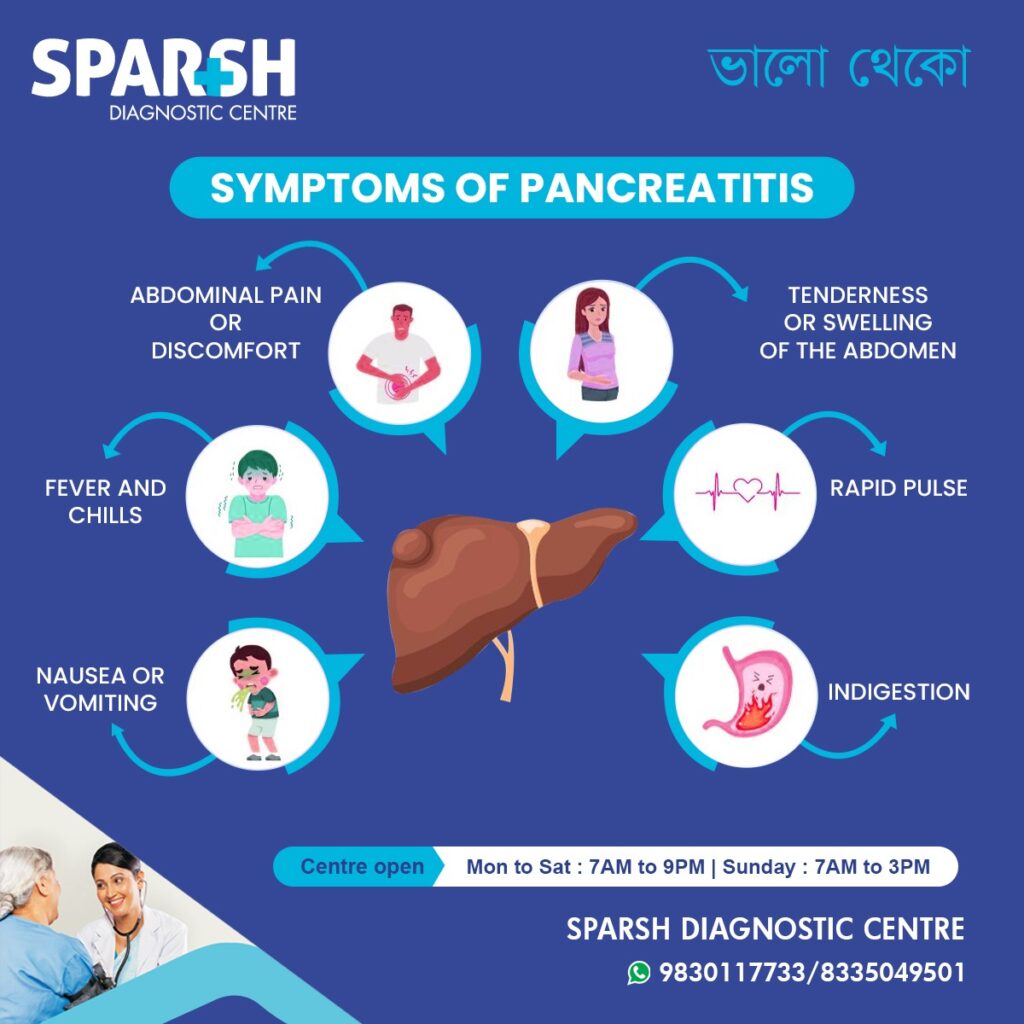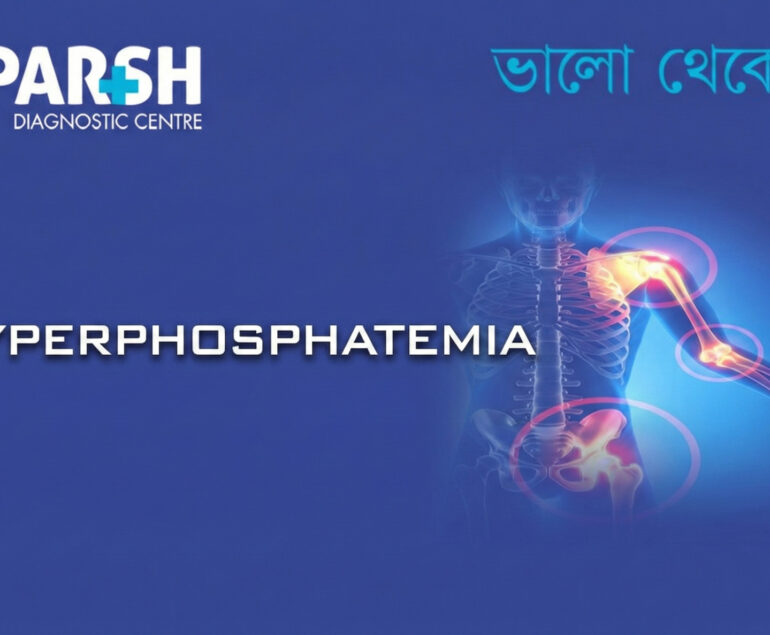The pancreas, a crucial organ in the digestive system, plays an indispensable role in the human body. It aids in digestion by producing enzymes and regulates blood sugar levels through insulin and glucagon. When the pancreas becomes inflamed, the condition is referred to as pancreatitis. This potentially severe condition can significantly impact a person’s health and requires timely medical intervention.
In this blog, we delve into the complexities of pancreatitis, its causes, symptoms, diagnosis, treatment options, and preventive measures to manage this condition effectively.
What Is Pancreatitis?
It is the inflammation of the pancreas, which can range from mild to severe. The inflammation occurs when the digestive enzymes produced by the pancreas become activated while still inside the organ, leading to irritation and potential damage.
It is broadly classified into two types:
- Acute Pancreatitis: A sudden onset of inflammation, often resolved with treatment but may lead to severe complications.
- Chronic Pancreatitis: A long-standing inflammation that can result in permanent damage, affecting the pancreas’ ability to function properly.
Causes of Pancreatitis
The most common causes include:
- Gallstones: These small, hardened deposits of bile can block the pancreatic duct, leading to enzyme buildup and inflammation.
- Alcohol Consumption: Excessive and prolonged alcohol use is a leading cause of chronic pancreatitis.
- High Triglyceride Levels: Hypertriglyceridemia can contribute to acute inflammation.
- Genetic Factors: Hereditary conditions, such as cystic fibrosis, can predispose individuals to pancreatitis.
- Medications: Certain drugs, including corticosteroids and diuretics, may trigger pancreatitis in some people.
- Autoimmune Conditions: Autoimmune pancreatitis occurs when the body’s immune system mistakenly attacks the pancreas.
- Infections: Viral infections, such as mumps or hepatitis, can also lead to pancreatitis.
- Trauma: Physical injury to the abdomen may result in pancreatic inflammation.
- Idiopathic Causes: In some cases, the exact cause remains unknown.
Pancreatitis symptoms
The symptoms vary depending on whether it is acute or chronic.
Acute Pancreatitis
- Severe upper abdominal pain that may radiate to the back
- Nausea and vomiting
- Fever
- Rapid pulse
- Swollen or tender abdomen
Chronic Pancreatitis
- Persistent upper abdominal pain, often worsening after meals
- Unintended weight loss
- Fatty, foul-smelling stools (steatorrhea) due to malabsorption
- Signs of diabetes in advanced cases

If left untreated, both acute and chronic pancreatitis can lead to complications such as infection, pancreatic necrosis, pseudocysts, or systemic organ failure.
Diagnosis
Timely diagnosis is essential to manage the condition effectively. Healthcare providers use a combination of medical history, physical examination, and diagnostic tests to confirm the condition.
- Blood Tests: Elevated levels of pancreatic enzymes, such as amylase and lipase, are common indicators.
- Imaging Tests:
- Ultrasound: Often used to detect gallstones or duct obstructions.
- CT Scan: Provides detailed images to assess the extent of inflammation or complications.
- MRI: Offers detailed visualization of the pancreas and surrounding tissues.
- Endoscopic Procedures:
- Endoscopic Ultrasound (EUS): Helps detect abnormalities within the pancreas.
- Endoscopic Retrograde Cholangiopancreatography (ERCP): Identifies and sometimes treats duct obstructions.
- Stool Tests: May be used to detect fat malabsorption in chronic cases.
Pancreatitis treatment
The treatment approach depends on its type and severity. The primary goals are to manage pain, address the underlying cause, and prevent complications.
Acute Pancreatitis
- Hospitalization: Severe cases often require hospitalization for close monitoring and supportive care.
- Fasting: Patients may need to refrain from eating or drinking temporarily to allow the pancreas to rest.
- IV Fluids: Maintain hydration and electrolyte balance.
- Pain Management: Medications to alleviate severe abdominal pain.
- Addressing Underlying Causes:
- Removal of gallstones via ERCP or surgery.
- Treatment of infections with antibiotics.
- Nutritional Support: In severe cases, nutrition is provided intravenously or through a feeding tube.
Chronic Pancreatitis
- Lifestyle Changes:
- Pain Management: Includes medications or, in some cases, nerve blocks.
- Enzyme Replacement Therapy: Pancreatic enzyme supplements aid in digestion and absorption.
- Treatment of Diabetes: Insulin therapy may be necessary if pancreatic damage leads to diabetes.
- Surgery: Procedures to remove blockages, drain pseudocysts, or partially resect the pancreas may be required.
Complications of Pancreatitis
Severe or untreated pancreatitis can lead to:
- Pancreatic Necrosis: Death of pancreatic tissue requiring surgical intervention.
- Pseudocysts: Fluid-filled sacs that may become infected or rupture.
- Chronic Pain: Persistent abdominal pain requiring long-term management.
- Malnutrition: Due to impaired digestion and absorption.
- Diabetes: Resulting from damaged insulin-producing cells.
- Organ Failure: In severe cases, systemic inflammation can affect other organs like the lungs or kidneys.
Preventing Pancreatitis
While not all cases of pancreatitis are preventable, several measures can reduce the risk:
- Limit Alcohol Intake: Avoid excessive drinking or abstain completely if advised.
- Maintain a Healthy Diet:
- Choose low-fat foods.
- Include fruits, vegetables, and whole grains.
- Exercise Regularly: Helps manage triglyceride levels and maintain a healthy weight.
- Monitor Medications: Discuss with your doctor if you’re taking drugs known to affect the pancreas.
- Manage Underlying Conditions:
- Treat gallstones promptly.
- Control diabetes and lipid levels.
- Quit Smoking: Smoking increases the risk of chronic pancreatitis and pancreatic cancer.
Living with Pancreatitis
For individuals diagnosed with chronic pancreatitis, managing the condition involves:
- Regular follow-ups with a healthcare provider.
- Strict adherence to prescribed medications and lifestyle modifications.
- Seeking support from nutritionists or dietitians to develop a personalized eating plan.
- Joining support groups or counseling to cope with the emotional impact of living with a chronic condition.
The Link Between Pancreatitis and Pancreatic Cancer
Chronic pancreatitis is a known risk factor for pancreatic cancer. Persistent inflammation and scarring increase the likelihood of cellular changes that can lead to malignancy. Regular monitoring and early detection strategies are crucial for those at risk.
Pancreatitis is a complex and potentially serious condition that requires prompt medical attention. Understanding its causes, symptoms, and treatment options empowers individuals to take proactive steps in managing their health. By adopting a healthy lifestyle, seeking timely medical care, and staying informed, patients can significantly improve their quality of life and reduce the risk of complications.
If you or a loved one is experiencing symptoms of pancreatitis, consult a healthcare provider immediately. Early intervention can make a significant difference in outcomes and pave the way for effective management.
To consult a Doctor at Sparsh Diagnostic Centre, call our helpline number 9830117733.
#BhaloTheko
Disclaimer:
No content on this site, regardless of date, should ever be used as a substitute for direct medical advice from your doctor or other qualified clinician.

![]()






[…] pancreas (causing pancreatitis or […]
[…] Pancreatitis […]
[…] Acute or chronic pancreatitis: Inflammation can erode ductal walls, forming fistulas. […]
[…] necrosis refers to the death of pancreatic tissue due to severe inflammation, often following acute pancreatitis. When the pancreatic enzymes meant for digestion begin to attack the pancreas itself, it causes […]
[…] 10. Pancreatitis […]
[…] Chronic pancreatitis […]
[…] Chronic pancreatitis […]
[…] 3. Pancreatitis […]
[…] Chronic pancreatitis […]
[…] Chronic pancreatitis: Long-standing inflammation of the pancreas can irritate or compress the splenic vein. […]
[…] Pancreatitis: Inflammation of the pancreas. […]
[…] Pancreatitis: Inflammation of the pancreas, often due to alcohol consumption or gallstones, leading to severe, persistent pain in the upper abdomen. […]
[…] Pancreatitis (especially with high triglycerides) […]
[…] Acute Pancreatitis: Inflammatory enzymes from the pancreas impacting other organs. […]
[…] 10. Pancreas (Pancreatitis) […]